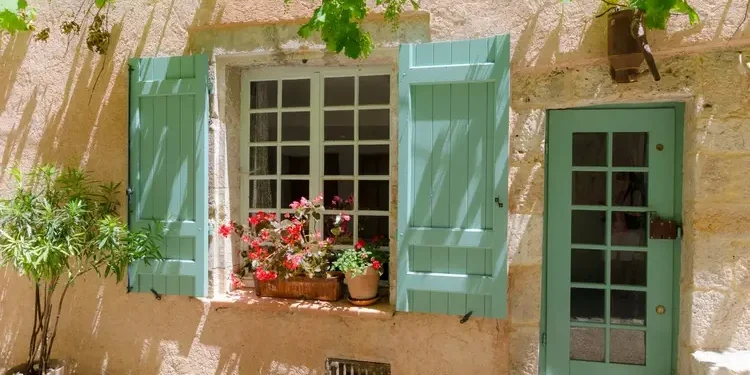Two core benefits of investing in property overseas are high-yield rental income and capital appreciation.
But there’s another strategic benefit that demands your attention right now: currency diversification.
Currency diversification means spreading your wealth across multiple currencies to protect it in case any particular currency crashes.
People from Argentina have long understood the importance of this. During Argentina’s 2001-2002 financial crisis, Argentines with savings in banks woke up one morning to find that their account values had been decimated.
The government removed the peg between the peso and the U.S. dollar and converted all bank accounts from dollars to pesos overnight.
Argentines who came out financially unscathed were those who had been accumulating physical U.S. dollars and keeping as much of their wealth outside the country as possible.
Stockpiling greenbacks in safety deposit boxes is a strategy that many Argentines employ to this day. Argentina is home to the second-highest number of physical U.S. dollar bills outside the United States (after Russia).
It’s possible that in a few months’ time, we won’t have to look as far as Argentina for an example of the importance of currency diversification…
The United States faces a series of events over coming months that could leave the average person who isn’t already diversified penniless and powerless, including:
- A pumped-up stock market that’s poised for a correction…
- A bubbling property market—of which about 25% of all buyers are speculators…
- An irreversible price hike on everything from groceries to rent—that’s bringing middle-class Americans to their knees…
There’s no time to delay getting your diversification plan started and avoid becoming a case study like Argentina…
What Is Diversification?
Diversification is taking some action offshore that helps ensure that you’re not at the mercy of any single market, economy, political landscape, government, or currency.
It comes in many forms, from pursuing multiple residencies and citizenships to opening bank accounts in various jurisdictions, investing in varied asset classes, and holding businesses offshore.
I’m homing in on the importance of currency specifically. Everyone agrees that you shouldn’t put all your eggs in one basket, and the same rule applies to currencies.
Diversification into various currency baskets is a way of protecting the value of your assets from problems in one financial jurisdiction.
For Americans, this means spreading your wealth among multiple currencies—creating stores of value and investing in cash-flowing opportunities that bring in euros, pounds, francs, and other currencies.
How To Achieve Currency Diversification Quickly
One of the smartest and fastest ways to achieve currency diversification is to invest in property overseas.
This immediately moves money outside of the United States and into a different market, creating a store of value in a different currency.
This can insulate you from risk because that market may be immune to disruption in the U.S. market and fare better than the United States during the next crisis.
Start Your New Life Today, Overseas
An overseas property investment can also bring diversification of market, type of investment, and type of property… all welcome by-products on top of currency diversification.
It’s also a bolthole that you can escape to if life becomes unbearable for you back home.
If you invest in a rental property, you can start earning income in the local currency, providing a pool of local funds that you can dip into when you spend time in that place or if you have local bills to pay.
This eliminates the issue of having to move money across currencies and being affected by inopportune fluctuations in the exchange rate.
Note that not all foreign property markets bring currency diversification…
Some countries’ economies use the U.S. dollar (Panama and Ecuador, for example). Other countries, like Belize, have their currencies pegged to the U.S. dollar.
In other countries, though they have their own currency, real estate is traded in U.S. dollars (Nicaragua and parts of Mexico), meaning that your currency hedge isn’t as clean as it could be.
What Diversification Is Not
Owning different kinds of properties in different cities and states across the United States isn’t diversification if it’s all invested in the United States.
However, neither is moving all your real estate investment capital out of the United States and placing it in any other single market—Panama, for example, or Colombia, or Brazil.
Lief tells a story about a past conference attendee who boasted that he’d diversified his real estate portfolio overseas. He’d sold off all his U.S. real estate, which had been a sizable portfolio, and bought a bunch of properties in Nicaragua.
He hadn’t diversified. Instead, he’d simply moved all of his real estate risk from one country to another. Now his personal wealth is completely exposed to whatever might come to pass in Nicaragua.
A global property diversification strategy may include investments in the United States, but it must also include investments in at least two (and preferably at least three) other countries, ideally each with its own currency.
Exchange Rate Impact
Exchange rates will affect your purchase price, ongoing expenses, and profits upon exit if you’re investing in a country where the U.S. dollar is not the local currency.
Using the Mexican peso as an example, it has been trading between 19 and 21 pesos per $1 in recent years. Even within this narrow band, the exchange rate impact can be significant. For a property valued at 7 million pesos, that 2-peso spread can cost or save you more than $35,000.
Exchange rates can work in your favor, especially when the U.S. dollar is strong. The dollar hit a two-decade high against the euro in September 2022, and although it has weakened since then, it’s still at high levels relative to long-term trends.
It also remains strong against other currencies, like the Colombian peso and the Brazilian real, enhancing your buying power in those places.
Don’t Try To Time It
Just like we don’t recommend buying property solely for capital appreciation, we don’t recommend trying to time property purchases with exchange rate fluctuations.
It’s impossible to predict that you’re going to make money on a currency transaction in advance. Pay attention to property values rather than currency movements when shopping for real estate overseas.
To smooth travels and successful property buys,

Sophia Titley
Editor, Overseas Property Alert










